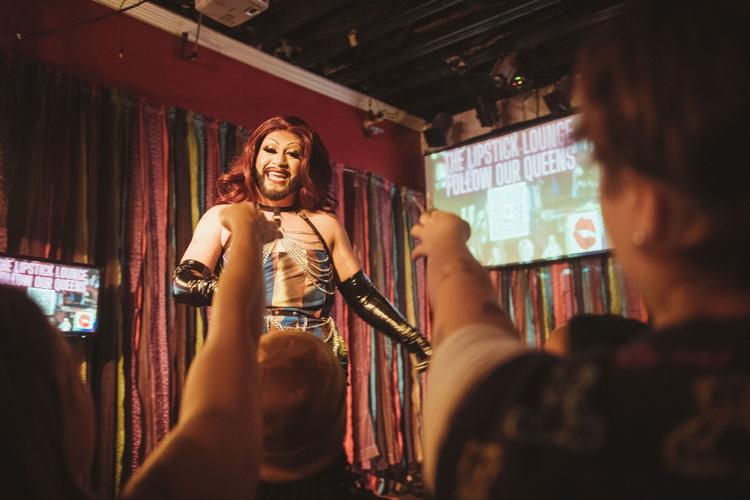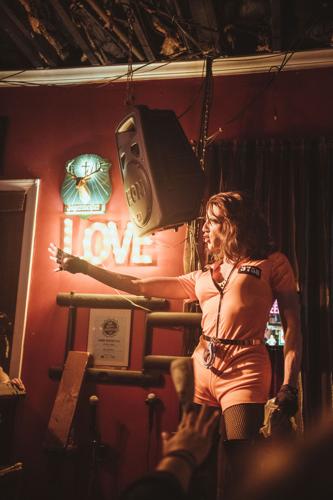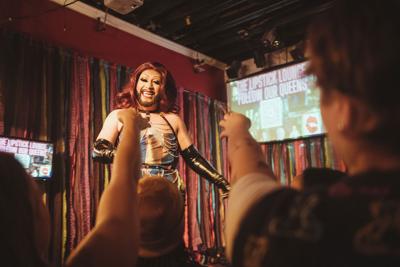History has proven time and again that attempting to censor something often generates further interest in it. This is true of music, books and, most recently, drag performances. Though efforts to restrict drag performances and LGBTQ expression aren’t new, Tennessee made history this year by becoming the first state to effectively outlaw certain drag performances in public.
The legislation — officially called the Tennessee Adult Entertainment Act — was passed this year alongside other anti-LGBTQ bills, including one designed to stop minors from receiving gender-affirming care. These laws sparked outcry from members and supporters of the LGBTQ community, and many galvanized to support those affected. The so-called public drag ban has been challenged and ruled against by federal judges, but its future is still uncertain. And efforts to censor the LGBTQ community continue.
In March, Gov. Bill Lee signed the Adult Entertainment Act, which prohibits “adult cabaret performances” from being performed in public or where minors could see them, punishable by a misdemeanor for one offense and a felony thereafter. The legislation defines adult cabaret performers as “male or female impersonators” as well as “strippers,” “exotic dancers,” “topless dancers” and “go-go dancers.” Many questioned how the legislation could be enforced. Would this affect drag performances on transpotainment vehicles? Would bars have to black out their windows so minors can’t view drag performances from the sidewalk? Could the law be leveraged to criminalize trans people for simply existing in public?
“It was very dark there for a minute,” says local drag queen Justine Van de Blair. “It was uneasy. You didn’t know if you were going to walk out of your house and get hate-crimed or just made fun of.”
Van de Blair also says the legislation “backfired.” As lawmakers considered and ultimately passed this bill and others targeting the LGBTQ community, local advocates and allies rallied to resist the legislation. They filled committee rooms, organized outside the state Capitol and encouraged their fellow Tennesseans to speak out. An enormous benefit concert was held at Bridgestone Arena featuring an all-star lineup of musicians including Jason Isbell, Sheryl Crow, Joy Oladokun and many others. Touring musicians dressed in drag and invited queens onstage with them to show solidarity. And of course, people attended drag shows.
“I think in a way it brought a lot of light and exposure to the drag community,” says Vidalia Anne Gentry. “For me, especially in the immediate aftermath, attendance was up. The energy was great.”
The so-called drag ban was quickly and successfully challenged in Memphis, where a Trump-appointed federal judge ultimately described the law as “constitutionally vague,” “alarmingly overbroad” and in violation of the First Amendment. The ruling prohibits the law from being enforced, but only in Shelby County.
A second federal judge — this one a George W. Bush appointee — temporarily blocked the law from being enforced in East Tennessee. The lawsuit was filed after Blount County District Attorney General Ryan Desmond shared a letter stating his intent to prosecute those who violated the Adult Entertainment Act during the Blount Pride festival.
Following the Memphis ruling, Tennessee Attorney General Jonathan Skrmetti appealed the judge’s decision to the 6th Circuit Court — a decision in that appeal has still not been made.

Drag performance at The Lipstick Lounge
Meanwhile in Middle Tennessee, the city of Murfreesboro has attempted to prohibit public drag performances in its own way. Ahead of this year’s BoroPride Festival, taking place this weekend, fest organizers the Tennessee Equality Project were unable to receive permits to conduct the event on city property. The Murfreesboro City Council also passed an ordinance prohibiting “indecent materials or events.” The ordinance has also been used to remove four books about LGBTQ identities from the Rutherford County Library System. A lawsuit on behalf of the Tennessee Equality Project alleges that Murfreesboro city leaders engaged in an anti-LGBTQ campaign designed to prohibit free speech and expression by withholding permits for Pride from the TEP and passing the ordinance. It argues that the ordinance could even subject people to civil and criminal penalties for displaying “any acts that are ‘homosexual’ in nature or any material or event even suggesting homosexuality.” On Oct. 20, a judge temporarily blocked the enforcement of the ordinance during the weekend of BoroPride.
In response to the onslaught of anti-LGBTQ legislation throughout Tennessee, people are getting involved in state and local politics. Alongside advocating for or against certain legislation, local queens like Gentry are using their platforms to engage others in the political process, from calling lawmakers to fostering engagement in local elections and encouraging people to vote — though this is nothing new. Gentry has been known to sling some voter registration cards at her events, even before the anti-drag legislation.
“Drag queens have always been political,” local performer Kennedy Ann Scott tells the Scene 30 minutes before stage call at The Lipstick Lounge, where Scott and her sisters will go on to entertain a packed house of roaring fans. Each queen absolutely drips style and swagger as they all rotate through outfits and dance numbers for the adoring crowd.
“We’ve always had to raise our voices, and we’ve always had to be on the frontlines of every argument, so I think you’re always gonna see drag queens in the front of the line fighting for rights,” says Scott.
“Drag is never going away,” adds fellow queen Lucinda.







